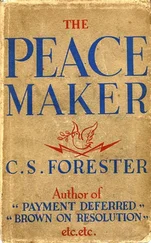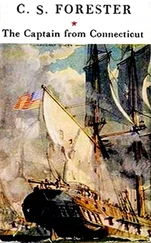Then it broke in upon his consciousness, staggeringly, as though the drawing-room clock were suddenly to strike with Big Ben's volume of sound. That mathematical expression at which his calculations had ended in the afternoon had transformed itself in his mind, had assumed a vital new guise, presenting itself with clarity as a stunning revelation. Pethwick's heart beat faster even than if he were thinking about Dorothy Laxton, and for once in his life he had no thought to spare for her. He was making his way from point to point of a new deduction in that highly rarefied atmosphere where mathematics tend to become not merely a measure of, but identical with, electro-magnetics and electro-kinetics.
He knew now that he was progressing towards not merely an interesting mathematical discovery which might make a flutter in the Royal Society and which might just possibly affect practical electro-magnetics to some slight degree, but that he was about to find something else; something much more important, a completely new development, a physical reaction of a kind hitherto unknown, whose nature he could now see clearly although only experimental test could determine its amplitude. It might be something very small, measured by practical standards—Pethwick could picture ingenious lecturers devising neat little mechanisms for displaying what would be called the Klein-Pethwick Effect—or it might be great, very great indeed, so great as perhaps to affect the history of the world.
We all know now that it was great enough to do so, and indeed might have done so if Pethwick had been only a mathematician, and not a man married to a drunken wife, and in love with his headmaster's daughter, and subject to all the other influences which these pages have endeavoured to describe. But to get back to the amazing train of events which, like a tropical hurricane, began with an innocent enough disturbance of a minor sort—
Mr. Holliday was one of those bluff and burly young men who stand no nonsense from boys. As the assistant physics master at the Liverpool School he was just as efficient as at the nets where the boys liked him even when they did not know that he had only just missed his Blue as a fast bowler for Cambridge. He never had any qualms about discipline. He could face and tackle any crisis.
On that historic occasion a year ago when some naughty boys hid a parcel of fish in a locker in the laboratory on the day before the half-term holiday, so that when the school reopened four days later the place stank like a whaling station in the hot weather, it was Mr. Holliday who guessed the cause, and who broke open the lockers until the source of the stench was located, and who discovered the miscreants, and who (in accordance with Mr. Laxton's new methods of punishment) caned them most satisfactorily—Dr. Pethwick, his senior, had never caned a boy in his life.
Consequently, when Mr. Holliday observed that IVa was not progressing rapidly with the experiment he had set them to do, after explaining it to them, he plunged boldly into the trouble, selecting, as was his wont, one outstanding individual for censure and, if necessary, punishment.
"What are you looking for, Williams?" he asked, pleasantly. "Trouble?"
Williams was a boy of much the same type as Holliday himself (although Mr. Holliday did not see the resemblance), rather stocky, rather stupid, rather simple.
"No, sir," said Williams. "I'm just asking Merivale if he's getting on all right."
"How nice of you to be so anxious about Merivale," said Holliday. "But I strongly advise you to go back to your place and get on with your experiment."
"I can't, sir, please, sir," said Williams.
"Oh," said Holliday. "So your anxiety about Merivale was not entirely disinterested?"
Mr. Holliday had begun lately to realize the value of sarcasm as a help in the maintenance of discipline and was unconsciously imperilling his popularity thereby. Williams merely stood still and resented Mr. Holliday's remarks in silence.
"I suppose," continued Holliday, "that you did not pay attention when I was explaining to you Gauss's method for Determining the Moment of a Magnet. But the diagrams are still on the blackboard. With the help of those you ought to be able to make some progress. I hope you can, Williams, for your sake and especially for the sake of what you sit on."
That was the sort of remark which ought to have drawn a snigger from the rest of the class; Mr. Holliday was quite surprised when it did not come. He looked round at the faces turned towards him from the laboratory benches, and in them he read at last that he was not dealing with naughtiness or indiscipline. He came down from his dais and approached the benches.
"Is anybody else in difficulty?" he asked.
"Yes, sir. Yes, sir," came from different parts of the laboratory.
"Well, what's your trouble, then, Maskell?" he went on. Maskell was the clever boy of the form.
"It's this compass needle, sir," said Maskell. "It doesn't seem to work."
Holliday bent over it. He twisted the little glass box around, and the needle spun round idly. When it came to rest it was certainly not pointing to the north. He tapped the case. The needle spun again, and came to rest in a different position. Clearly there was not a trace of magnetism left in it. He approached it to the bar magnet lying on the sheet of paper on which Maskell was conducting his experiment. There was not the least quiver in the needle at all.
"That's queer," said Holliday to himself.
"The magnet seems all wrong, too, sir," said Maskell.
Holliday slipped the magnet into the paper stirrup which hung from the thread, and allowed it to swing free. As soon as the rotation due to the extension of the thread was finished, the magnet swung idly, without a trace of the dignified north-seeking beat which delighted Holliday's heart even now, after observing it a hundred thousand times.
He grabbed another bar magnet from the bench, and brought its north pole towards first the north and then the south pole of the suspending magnet. Nothing happened. He brought the two magnets into contact—so still was the room that the little metallic chink they made was heard everywhere. But neither bar magnet was disturbed. They were quite indifferent. It might have been two pieces of brass he was bringing into contact, for all the attraction that was displayed.
Holliday looked up from the bench; from beneath his fair eyebrows he swept his glance round the form. In the expression on the boys' faces he read interest, indifference or amusement, according to their varying temperaments, but no sign whatever of guilt.
"Are all your magnets and compass needles like this?" he asked.
"Yes, sir," said the form.
Holliday went across to the cupboard and took out the tray of bar magnets. The ones remaining there were in the same state—the keepers joining north and south poles betrayed no trace of adhesion. He called for the laboratory assistant.
"Owens! Owens!"
Owens appeared from his den.
"Did you notice anything funny about these magnets and compass needles when you put them out?" demanded Holliday.
"Well, sir, I thought they—"
Holliday heard half of what he had to say and then sent him off. Clearly Owens had no hand in the business, and whatever had been done to the magnets had been done before the lesson began. He stood for a moment in thought. But now the IVa had got over the initial interest and surprise, they seemed likely to take advantage of the unusual state of affairs. They were already beginning to fidget and wiggle and giggle and play—four of the gravest crimes in Mr. Holliday's calendar.
Mr. Holliday took a Napoleonic decision, characteristically. He swept away the whole question of Determining the Moment of a Magnet. He called to Owens for blocks of glass, and pins; he mounted his dais, and wiped the blackboard clean of Gauss's method. Within two minutes the subject of the lesson was changed to the Determination of the Index of Refraction of Glass, whereby there was no risk of further trouble due to the mischievous activities of naughty boys with the electro-magnetic apparatus. And, true to the disciplinary standard which Mr. Holliday had set himself the boys reaped nothing of what they would term benefit, from someone unknown's misdemeanour.
Читать дальше












